Buy or gift a stand-alone digital subscription and get unlimited access to dozens of back issues for just £18.99 / $18.99 a year.
Please register at www.exacteditions.com/digital/cornucopia with your subscriber account number or contact subscriptions@cornucopia.net
Buy a digital subscription Go to the Digital Edition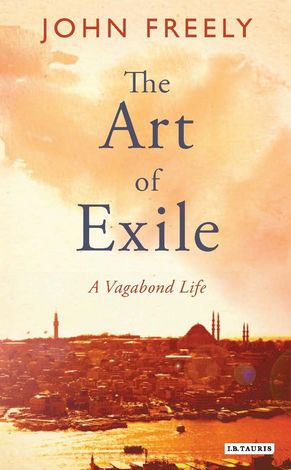
A Vagabond Life
By the time he was six, John Freely had crossed the Atlantic four times. His childhood was spent on the mean streets of 1930s Brooklyn, where he scavenged for junk to sell and borrowed money for books; his first love being Homer’s Odyssey. He was 15 when Japan attacked Pearl Harbor and 17 when he enlisted in the US Navy and embarked on the first great adventure of his life: joining a clandestine unit that helped the Kuomintang fight the Japanese. He served for two years, 96 days in combat and a total of 344 days overseas, which sparked a lifelong passion for travel. Returning home after the war, Freely fell in love with a beautiful girl who sang the blues. His own Penelope. Together they signed a blood pact to spend their life travelling the world. This unforgettable memoir takes the reader from the streets of New York to the corridors of provincial campus life; from World War II in the Pacific to the shores of the Bosphorus and from Ancient Troy to the isles of Dionysus and Ariadne. It is the story of a remarkable odyssey that has spanned nine decades, several continents and one great love.And still the odyssey continues, “as I ponder the meaning of an Ithaka and of exile as an art that takes a lifetime to master. “
“Imagine Zorba the Greek as a wandering Irishman from Brooklyn and you have the beginnings of John Freely. His odyssey has been a wild ride across continents, a microcosm of modern history. Freely is a born storyteller and an expert on everything from mysticism to physics to the back streets of Athens, Istanbul and Venice. The only danger of reading this book is envy for such a dazzling life.” - Stephen Kinzer
Exile is the theme of these two marvellous, whimsical new books – or rather the adven-tures of two remarkable men who chose to exile themselves to the shores of the Levant. They are travellers’ tales, but also accounts of lives dedicated to travel. And they are dispatches from the most distant and unattainable land of all – the different country of the past. John Freely and John Carswell lived and loved a Mediterranean world that was vanishing even before their eyes in the 1960s and 70s. The Levantine Greek diaspora, the donkeys and earth toilets, undiscovered beaches, unmade roads and deserted ancient ruins – all these have been largely swept away by mass tourism, by prosperity, and, less happily in the case of Carswell’s Lebanon and Syria, by war.
Freely’s The Art of Exile is the full – and long-awaited – autobiography of one of Istanbul’s most remarkable residents. Born into a family of Irish immigrants struggling to make their way in 1920s Brooklyn, Freely crossed the Atlantic four times before his seventh birthday as poverty forced his mother back to Ireland, steerage-class, when they could not makes ends meet.
In Brooklyn the young Freely made pennies collecting scrap on the streets with a handcart. In Ireland he slept with his siblings in the earth-floored room of a cottage inhabited by the family for 500 years, heated by a turf fire and lit by paraffin lamps. The Freelys’ arrival in their ancestral village by motorcar marked the first time his playmates had ever heard a car’s horn. Entertainment was provided by a fiddle, the singing of old Gaelic songs, and tales handed down from his great-grandfather of a city called Constantinople where the old man had recuperated from his wounds in the Crimean War in Florence Nightingale’s military hospital in Üsküdar. Freely’s tales of a pre-electric, almost pre-modern rural Ireland are a fascinating reminder that the ancient culture he witnessed disappearing in Turkey and Greece in the 1990s were still living traditions in the West, too, just a generation before.
Freely’s determination to educate himself and launch himself into the wide world are humbling. While studying physics he paid his way by working long shifts in a Brooklyn condom factory. As soon as he was able he signed up for the navy, fretting that the Second World War would be over before he had a chance to travel the world. Deployed to China in the last days of the war, he drove a truck over the “Hump” of the Burmese mountains and flew back in a transport plane laden with mules. The GI Bill allowed him to study at Princeton, lecturing to the Nobel-prize-winning nuclear physicist Edward Teller and passing Robert Oppenheimer, father of the atom bomb, mowing his lawn.
But it’s Freely’s time in Istanbul, where he would spend much of his life, that is most fascinating. Soon after he met his wife Dolores – Toots – the young couple signed a pact in blood that they would spend their life travelling. So when an offer came from Robert College, the American missionary-founded university by Istanbul’s Rumelihisarı, to go and teach there, the Freelys set off on what would become a lifelong odyssey.
In many ways the Istanbul that Freely first knew has gone for ever. A flock of sheep grazed by the runway of Atatürk airport. The Boem (Bohème) restaurant in Beyoğlu was full of Greeks dancing and singing the ancient folk songs of the city, Rejans was full of Russian émigrés, and the little restaurants by the side of the Bosphorus were frequented by rakı-sipping fishermen.
The Freelys, three children in tow, missed no opportunity to travel around Turkey – and saw, returning from Trabzon on the Turkish Maritime Lines ferry Samsun, the first waves of Anatolian immigrants crowding the decks, sleeping on giant bags of hazelnuts. It was an exodus from country to city that would sweep away the old Istanbul for ever. In pre-mass-tourism Antalya, they found the taxis were horse-drawn – and did not have to be told where to go because there was only a single decrepit hotel in the whole town.
In person Freely is a wonderful talker, a storyteller in the Irish manner. But more importantly he’s a good listener, with a gentle good humour and curiosity that allowed him to sit down with Naxiot peasants, Greek gypsies and Nobel prize winners on equal terms. Various luminaries cross Freely’s path and are described with imperturbable, wry wit. Yaşar Kemal comes up and plucks a hair from Freely’s red beard one drunken night in a Beyoğlu meyhane; Freely walks over to the great Turkish writer’s table and plucks a black hair from his chest in return. While crossing the Mediterranean on the Soviet cruise ship Felix Dzherzhinsky, a charming Egyptian Air Force major asks for a dance with Freely’s young daughter – she stands on his shoes as they perform a slow foxtrot. The officer’s name is Hosni Mubarak, Egypt’s future president. Rounding Battery Park in Manhattan in 1946 on his way back from the war, Freely, from his station on the flying bridge of a troopship, catches sight of President Franklin D Roosevelt waving to the returning soldiers.
Freely is an impressive scholar, not just of physics but of the literature of the ancient world. He wears his scholarship lightly. But the stories of his travels – as well as his 60 books on the region (at last count) – are suffused with a deep sympathy with the voices of the past, from Sappho to Callimachus of Cyrene and Archilocus of Paros to Homer, whose restless spirit guides Freely’s wanderings in the natural and supernatural worlds of the Eastern Mediterranean.
John Carswell’s travels occupy some of the same time and space as Freely’s, but their spirit comes from a different tradition of British voyager. Carswell is a gentleman scholar in the adventurous mould of Frank Burnaby and Eric Newby. Living and teaching at the American University of Beirut in the 1970s, Carswell combined his twin loves for sports cars and ancient Chinese pottery by embarking on an eccentric trip across the Levant, India and the Maldives in a Morgan sports car in search of blue-and-white porcelain.
The journey is, at heart, a magnificent jaunt. But the scholarly purpose – or excuse – for this odyssey undertaken in the most impractical of vehicles is a fascinating one. The ancient Chinese invented porcelain; the ancient Persians invented blue-and-white glazes. As trade between the two worlds unfolded in the early 14th century the two traditions met and intertwined, with the masters of Chinese porcelain taking to the vibrant new cobalt blue dyes with extraordinary aesthetic results. The great princely collectors of the Islamic world, from Constantinople to Persia and Damascus, also became avid collectors of these prized objects, which the Chinese began creating for export to European markets.
The unexplained mystery that Carswell sets out to solve is how the two worlds met and mingled. And, as he discovers in the course of his travels, the Maldive Islands off the west coast of India were an important staging post for the Arab traders who were the go-betweens between the two great civilisations of their world.
As the great archaeologist Sir Mortimer Wheeler observed, pottery is valuable to historians because it is easy to break but difficult to destroy. Thus the telltale blue-and-white shards lead Carswell on an archaeological detective hunt from Beirut to India. In Sri Lanka, stumbling across sand dunes in the gathering dark, he literally crunches across a trove of Chinese qingbai dishes of translucent white porcelain, discarded by a team of workers digging a trench straight through a buried hoard.
But despite the earnest underpinnings of his journey, Carswell’s travels are undertaken in an almost schoolboyish spirit of adventure. With his new wife, Peggy, and (remarkably patient) stepchildren in tow, the Speedy Motor of the title trundles and very occasionally speeds across a lost world. The Middle East that he describes is still a courtly, slow-moving place, unspoiled by oil wealth and conflict. India is more recognisable, with its charming chaos and bad drivers (a braking bus near Chickmagalur fatally prangs the Morgan and almost does for its passengers too).
Freely’s and Carswell’s accounts are charming, but they make for bittersweet reading. They are stories from a more innocent world – a world that is on the verge of destruction by the twin currents of prosperity and chaos. But what one misses most is the sense of a world that is still unimaginably large, and unknown, and mysterious.
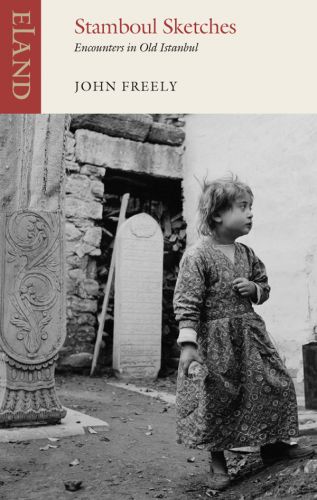
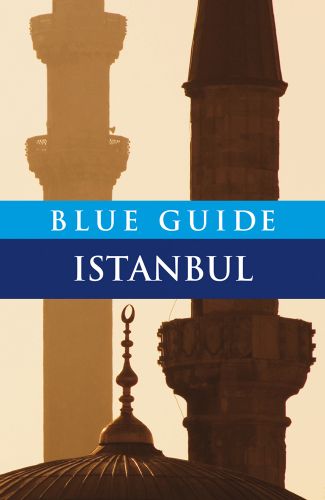
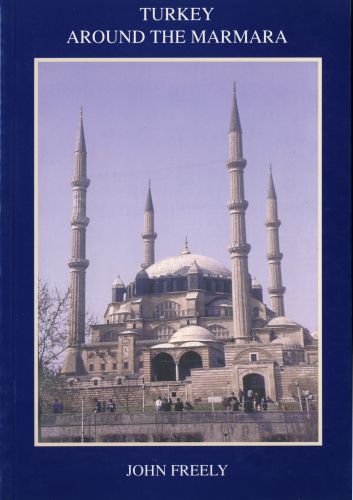
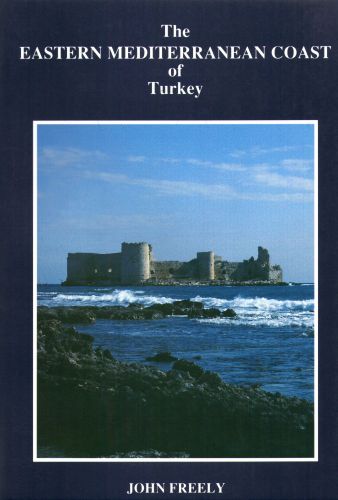
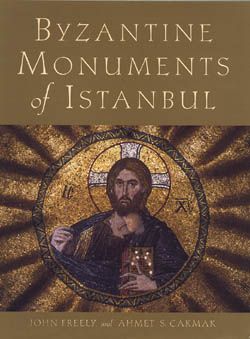 Buy from Amazon
Buy from Amazon
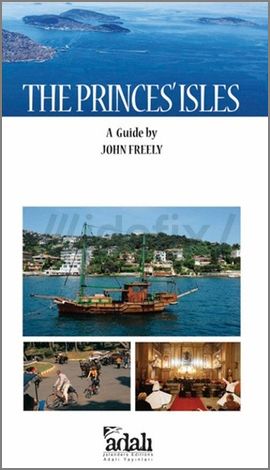
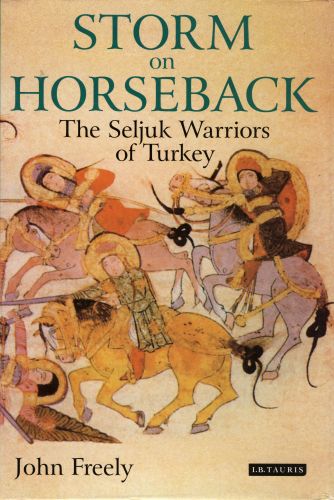
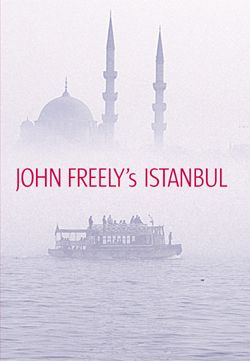 Out of Print
Out of Print
1. STANDARD
Standard, untracked shipping is available worldwide. However, for high-value or heavy shipments outside the UK and Turkey, we strongly recommend option 2 or 3.
2. TRACKED SHIPPING
You can choose this option when ordering online.
3. EXPRESS SHIPPING
Contact subscriptions@cornucopia.net for a quote.
You can also order directly through subscriptions@cornucopia.net if you are worried about shipping times. We can issue a secure online invoice payable by debit or credit card for your order.

Cornucopia works in partnership with the digital publishing platform Exact Editions to offer individual and institutional subscribers unlimited access to a searchable archive of fascinating back issues and every newly published issue. The digital edition of Cornucopia is available cross-platform on web, iOS and Android and offers a comprehensive search function, allowing the title’s cultural content to be delved into at the touch of a button.
Digital Subscription: £18.99 / $18.99 (1 year)
Subscribe now